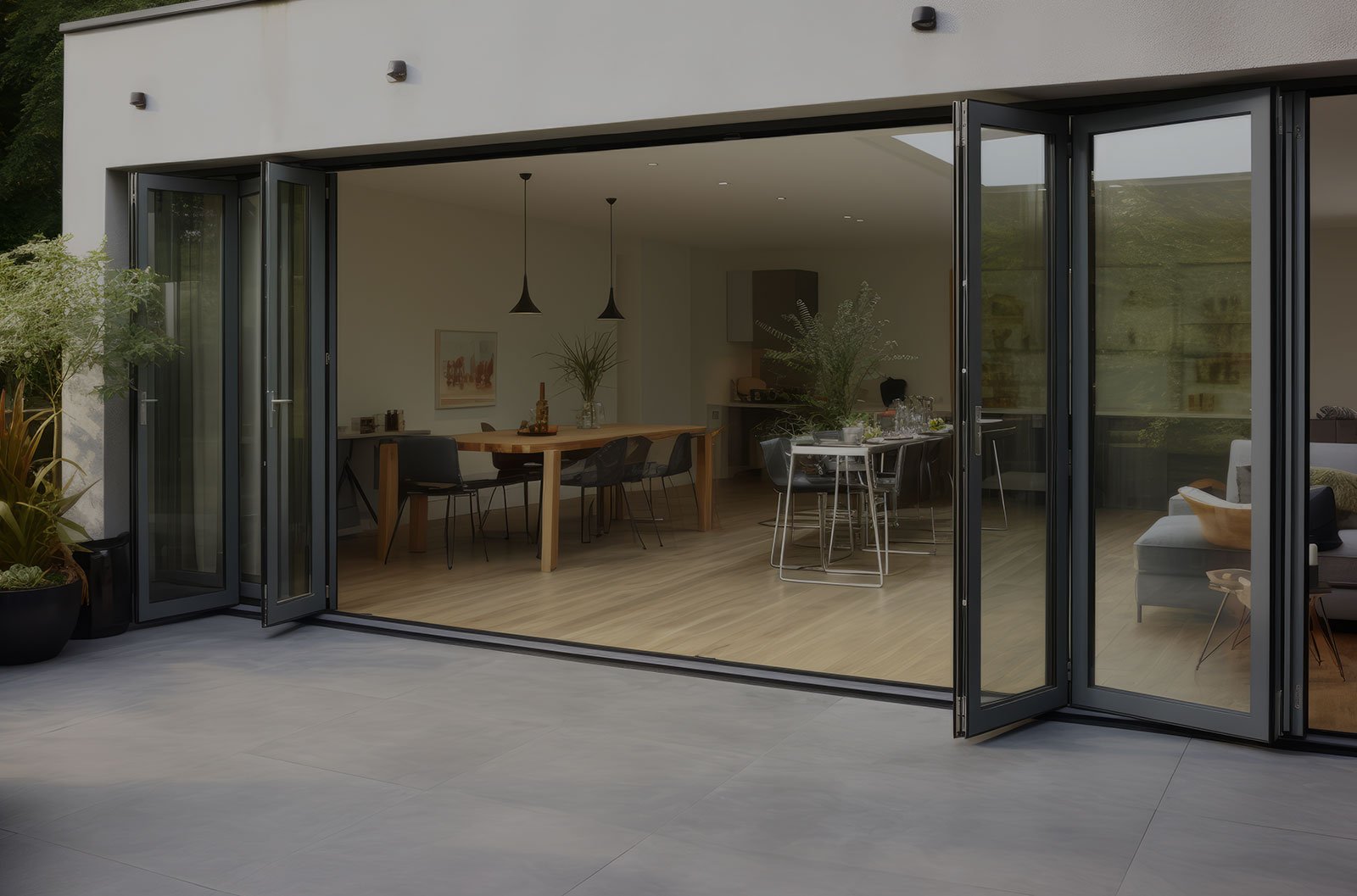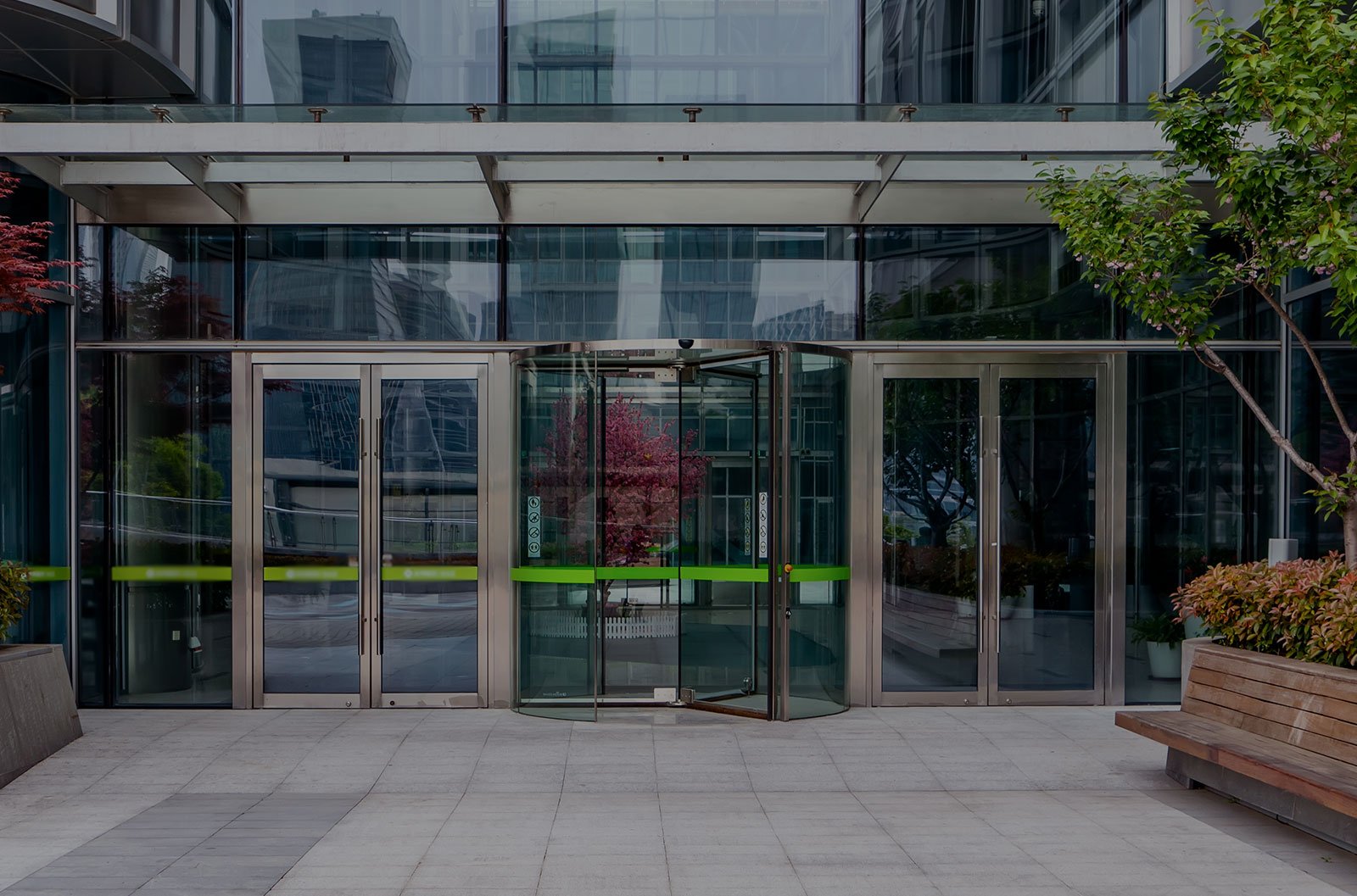
Automatic doors are a popular choice for the entrances to commercial buildings. Not only are they more welcoming than heavy manual doors, but they also maintain a pleasant interior climate and prevent bottlenecks at busy periods.
Commonly found in supermarkets, pharmacies, on the high street, in office blocks, schools, hospitals and other public buildings, we often take their versatility for granted, as they operate so seamlessly.
However, without automatic door maintenance, their efficiency may be impaired.
If you’ve neglected the servicing side of things, it’s not too late to start taking proper care of one of your building’s most prized assets. With regular maintenance, you can enjoy up to 20 years’ continued service.
What kinds of automatic doors are there?
Whether you choose automatic sliding doors, revolving doors or swinging doors, preventive maintenance will maximise their efficiency and increase their lifespan.
Automatic sliding doors are particularly popular for hospitals and supermarkets. The wide access point means it is easy to manoeuvre wheelchairs, hospital beds, shopping trolleys and delivery pallets.
Buildings that have a heavy and sustained footfall of visitors can benefit from installing automatic revolving doors. These include hotels, office blocks and shopping centres. One point of entrance can be used for people entering and leaving the building without collisions.
There are several different varieties of automatic swing doors, including single or double leaf, fully automatic and low energy.
Automatic swing doors are the most complex to design and install, as there are many factors to take into consideration. As well as the width and weight of the doors, the speed and force with which they open are also important variables.
Whichever design you choose, it’s vital that you prioritise safety – a crucial part of your maintenance routine.
Are automatic doors safe?
When your business has automatic doors, you can benefit from enhanced fire protection and clear escape routes. The automatic door sensor is part of a sophisticated system that will continue to operate, even in an emergency.
When a corridor is identified as a fire escape route, the automatic doors must have a fail-safe detector (an opening impulse generator) to ensure they will open after being triggered, or in the event of a loss of power. The doors can then be used as an escape and rescue route in an emergency, thanks to their safety features.
An Uninterrupted Power Supply (UPS) feature provides a reliable backup solution in the event of the short-term loss of mains electricity. It permits the doors to continue to operate during a power cut.
In everyday situations, the automatic doors’ infrared light sensors register people and objects in an adjustable detection zone. This means people, animals and objects such as hospital beds and shopping trolleys will trigger an opening signal when they enter this zone.
Why do automatic doors require regular maintenance?
Automatic doors are designed to be long-lasting and durable. However, years of regular use and the associated environmental factors, such as exposure to bad weather, means they will require regular maintenance.
Building owners should adhere to best practice and keep their doors in good working order to avoid the need for troubleshooting measures when something goes wrong.
The first sign that you haven’t looked after your doors properly is when they won’t open – or they may open, but then refuse to close. This suggests there may be a problem with the optical sensors or motor mechanism. A door maintenance professional will be needed to diagnose the issue.
Another sign of a problem is if the doors move uncontrollably, opening and closing themselves randomly. Again, this could be a problem with the sensor and will require an expert assessment.
If the door panels start sticking on their tracks after years of use, it may indicate damage if they haven’t been properly maintained. Take the time to check your doors to prevent these problems from happening, as they can lead to downtime for your business.
The lubrication of automatic doors is extremely important to their efficiency. Locks, hinges and latches need lubricating to avoid wear and noise problems such as squeaking. Listening to the sound of the doors can alert you to potential issues. The main areas that need greasing are where the door and motor rotate.
Obstruction detection is also an important part of automatic door maintenance. A properly adjusted automatic door will stop or reverse if an obstruction is encountered during its use. This is vital to safety as people enter and leave the premises.


Shanie Reichert
In perferendis ratione accusantium consequatur. Provident sunt optio ut soluta et. Architecto itaque sunt aspernatur quae quo voluptas id.
Quaerat veritatis odio nihil assumenda voluptate. Dignissimos iure facilis animi. Qui rerum praesentium et cum velit.